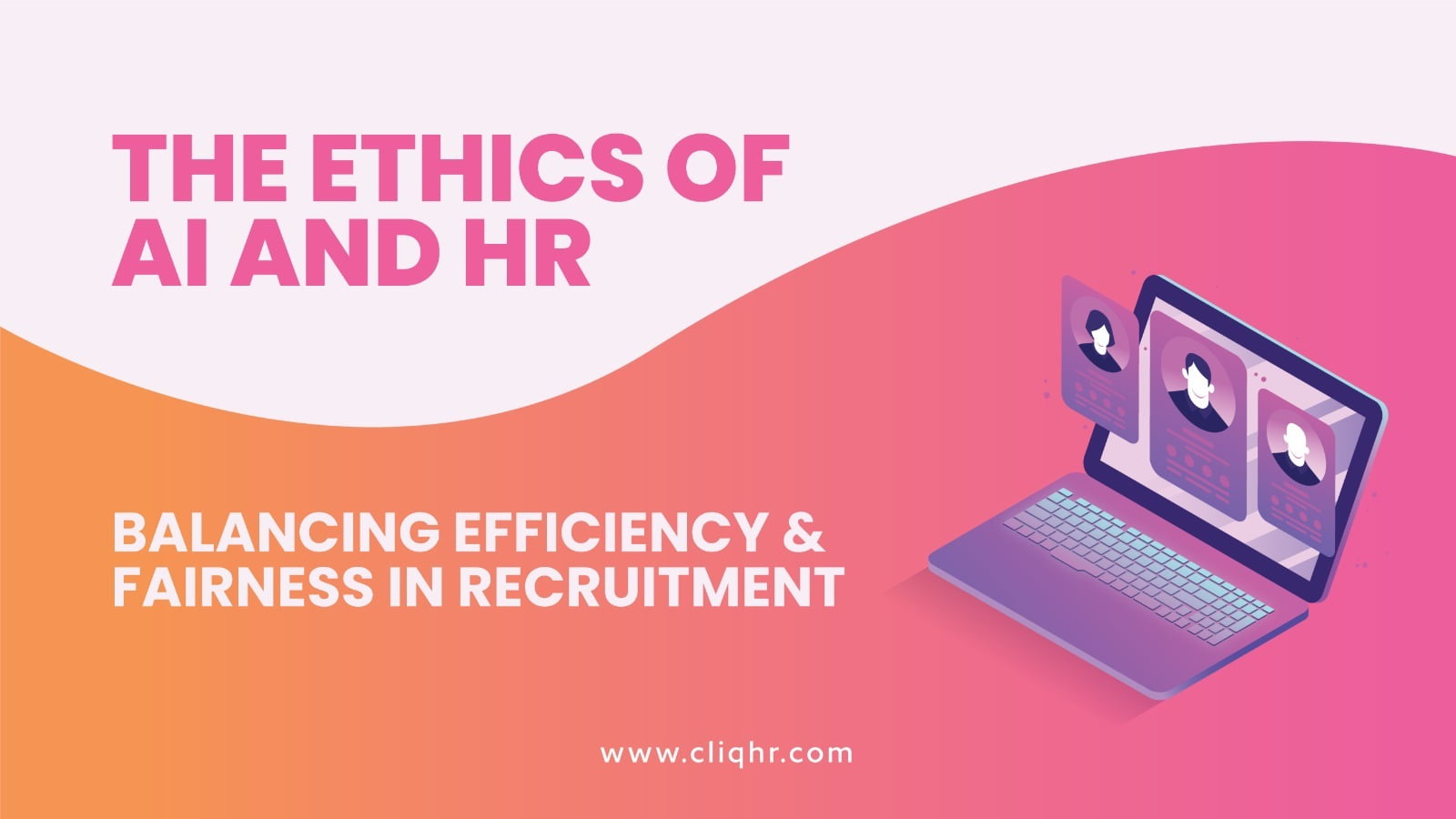AI in talent acquisition a review of AI applications used in recruitment and selection, has revolutionized many aspects of our lives, including the field of human resources (HR). One area where AI is making significant strides is in recruitment, where it promises to enhance efficiency and effectiveness. However, as AI becomes more prevalent in ethical issues with AI in HR regarding the ethical use of artificial intelligence in human resource management a decision making framework.

AI enabled recruiting what is it and how should a manager use it?
Candidate Assessment:
AI can facilitate the assessment of candidates through various means, such as video interviews, online tests, and gamified assessments. These AI-powered tools can analyze candidate responses, and other data points.
Bias Mitigation:
One advantage of AI-enabled recruiting is its potential to reduce unconscious biases in the hiring process. AI algorithms can be trained to focus solely on relevant qualifications and skills, disregarding irrelevant factors such as gender, ethnicity, or age
Predictive Analytics
AI can leverage historical data and patterns to make predictions about candidate success and job performance and lessen the problems with AI in recruitment. By analyzing past hiring data, AI algorithms can identify the key attributes and characteristics that lead to successful hires.
Streamlining Administrative Tasks:
AI can automate various administrative tasks associated with recruitment, such as scheduling interviews, sending follow-up emails, and coordinating communication with candidates. Managers can focus more on strategic decision-making and building relationships with candidates.
Continuous Learning and Improvement:
By analyzing the problems with AI in recruitment of previous hires and comparing them with the predictions made by AI algorithms, managers can refine and improve the system over time.
Unconscious Bias and Algorithmic Fairness
One of the primary ethical issues with AI in HR is the potential for perpetuating unconscious bias. AI algorithms rely on historical data to make predictions and decisions, and if that data reflects biases present in society, the algorithms can inadvertently perpetuate them.
Opportunities and risks of artificial intelligence in recruitment and selection of application of AI in HR
Below we have mentioned some of the potential opportunities and risks of artificial intelligence in recruitment and selection that you can tackle with a better planning and progression:
Transparency and Explainability
Another one of the compelling ethical considerations in AI based recruitment is the need for transparency and explainability. Candidates have the right to understand how decisions about their employment are being made. HR professionals should strive to adopt AI in talent acquisition a review of ai applications used in recruitment and selection, providing clear explanations of how the algorithms arrive at their recommendations or decisions
Data Privacy and Security
AI enabled recruiting what is it and how should a manager use it? To avoid confronting such problems with AI in recruitment One should heavily rely on vast amounts of data, including personal and sensitive information about candidates. Protecting this data is crucial to maintaining trust and ethical standards. Organizations must prioritize data privacy and security, ensuring compliance with relevant regulations and implementing robust security measures to safeguard candidate information.
Algorithmic Bias and Discrimination
While AI has the potential to streamline the recruitment process, there are endless opportunities and risks of artificial intelligence in recruitment and selection bias and discrimination. Biased training data or flawed algorithms can inadvertently discriminate against certain groups, leading to unfair outcomes. AI in talent acquisition a review of ai applications used in recruitment and selection regularly monitor their performance for bias, and intervene when necessary to ensure fair and equitable recruitment practices.
Human-AI Collaboration
An ethical use of artificial intelligence in human resource management a decision making framework involves emphasizing the importance of human oversight and intervention. HR professionals should view AI as a tool to augment their decision-making capabilities rather than replace them entirely. The human touch is essential for contextual understanding, empathy, and evaluating intangible qualities that AI may struggle to assess accurately.
Continuous Monitoring and Evaluation
To address ethical issues with AI in HR and AI enabled recruiting what is it and how should a manager use it? HR departments should continuously monitor and evaluate the performance of AI systems in recruitment. Regular audits can help identify and rectify any biases or unfair practices. It is crucial to establish feedback loops, gather input from candidates and employees, and make iterative improvements to ensure fairness and ethical conduct.
Ethical guidelines and standards
Organizations and industry bodies should collaborate on the ethical use of artificial intelligence in human resource management a decision making framework. These guidelines can provide a framework for organizations to ensure fairness, transparency, and accountability in their recruitment processes. Adhering to such standards can help build trust with candidates and stakeholders.
Conclusion
As AI becomes increasingly integrated into HR processes, it is vital to navigate the ethical considerations in AI based recruitment. Balancing efficiency and fairness is a challenge, but it is necessary to maintain trust and uphold ethical standards. HR professionals must be proactive in addressing problems with AI in recruitment, ensuring transparency.
We hope this blog connects you well with AI enabled recruiting what is it and how should a manager use it more thoroughly!
